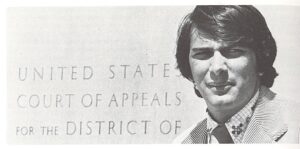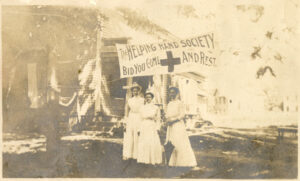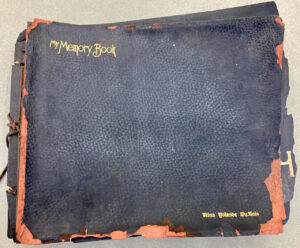Nick Akerman Watergate Special Prosecution Force Collection
Nick Akerman, a UMass Amherst class of 1969 graduate, continued on to Harvard Law School and became a lawyer for the Department of Health Education and Welfare and the Federal Trade Commission. While at Harvard, he studied under James Vorenberg, who became a professor at Harvard Law School in 1962 and was the principal assistant to Archibald Cox in the Watergate Special Prosecutor’s Office. Vorenberg recruited Akerman to join the legal team and work under Cox, and later Leon Jaworski, who led the legal investigation into the Watergate affair. As a member of the team, Akerman led the Plumbers Task Force, which investigated the group that broke into the Watergate, burglarized Daniel Ellsberg’s psychiatrist’s office and attempted to “neutralize” him in 1972. He stayed in Washington until 1976, when he moved to New York. He became the Assistant United States Attorney in the Southern District of New York, where he prosecuted a wide array of white collar criminal matters, including bank frauds, bankruptcy frauds, stock frauds, complex financial frauds, environmental and tax crimes. He later founded Nick Akerman Law where he specialized in criminal and civil applications of the Racketeer and Corrupt Organizations Statute, the Economic Espionage Act, the federal Securities Laws, the Foreign Corrupt Practices Act and State Trade Secret and Restrictive Covenant Laws.
This small collection contains the material Akerman collected in the course of working for Cox and Jaworski on the Plumbers Task Force, as well as material collected by the larger Special Prosecution Force. It consists of legal memoranda, motions, subpoenas, and Akerman’s staff meeting notes. Also included are Akerman’s chron files from 1973-1975, reports, newspaper clippings, a reel to reel tape, and a Nixon campaign photo.



